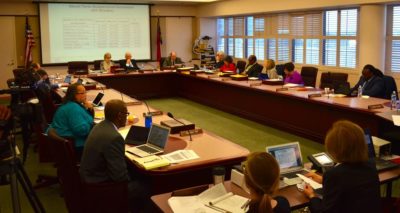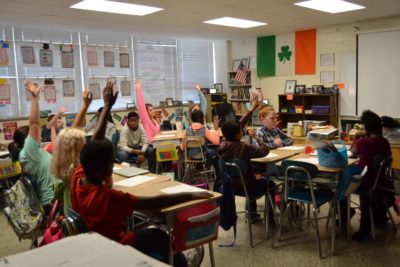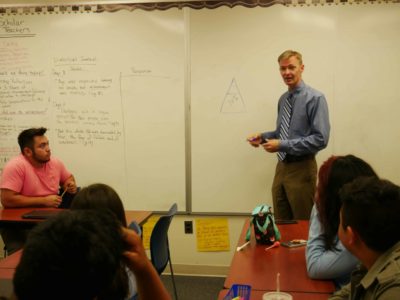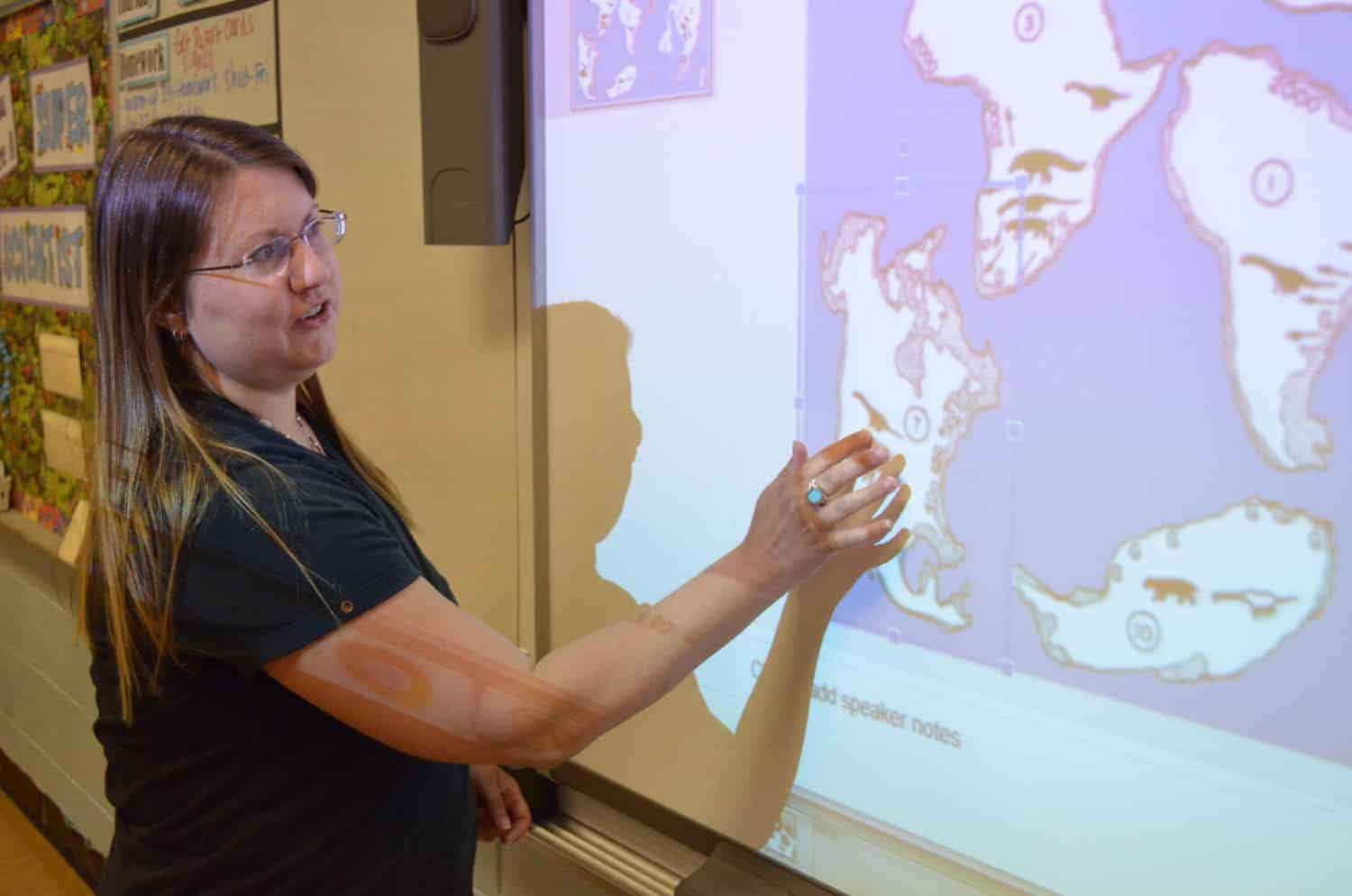To understand why Beverly Owens, an eighth grade science teacher at Kings Mountain Middle School in Cleveland County, became a teacher, one must know something about the novel “Christy.”
“Christy,” is a historical fiction novel by Catherine Marshall. It is set in the Appalachian village of Cutter Gap, a fictional place in Tennessee. The title character leaves her home in Asheville, North Carolina to go to the village and teach school. When Owens read “Christy” in high school, she understood how Christy wanted to make a difference. Owens said she felt the same way.
“I always wanted to work with children,” Owens said, explaining later why she picked middle school in particular. “I like this age. I can kind of joke with them and cut up with them, establish a good rapport with the kids.”
She went to college on a music education scholarship in the late 1990s. After a few semesters, she knew she wanted to teach, but she did not want to teach music.
Since then, she has been everywhere in Cleveland County, from Shelby Middle School, to Crest Middle School, and finally to Kings Mountain where she has been for the last three years.
Owens landed in Kings Mountain after taking a break from the classroom to serve as program manager for professional development at Discovery Place STEM Center in Charlotte. She worked in that role for 2 years before feeling the call to return to middle school.
She says her eighth graders are just the right age. Some of them still act younger, want to come up and give her hugs, but many of them know that there is a lot riding on eighth grade, and she can teach them science at an advanced enough level to be satisfying for her.
Owens classroom does not look like the typical television depiction of a classroom. Her students operate Chromebooks, which she uses for blended learning, allowing the students to incorporate digital technology into their everyday tasks. She has a 3D printer that she can use to print out large models of viruses or reproductions of fossils students may use to make fossil casts.
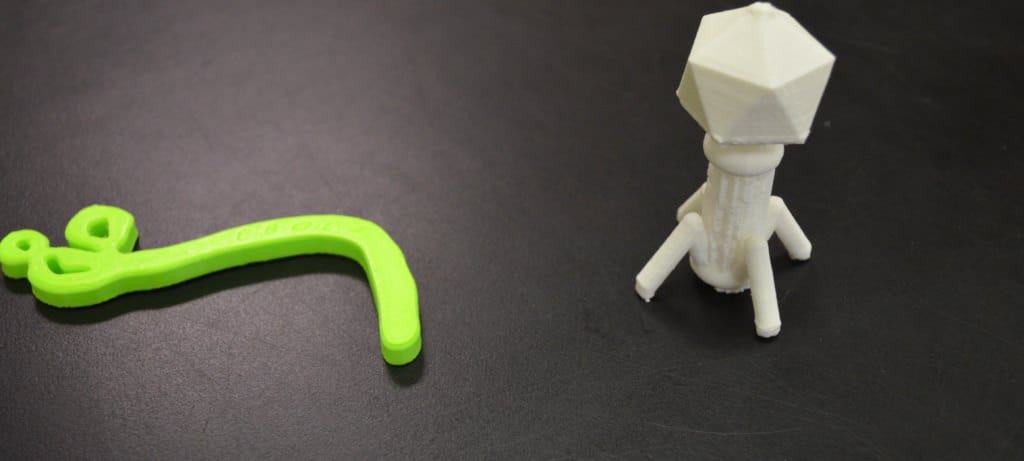
Owens is deliberate about her lesson plans. When she does blended learning with computers, she wants to make sure that it is actually a combination of hands-on learning and technology and not just students fiddling around on the computer.
“I want to make sure…I don’t lose the integrity of hands-on learning,” she said.
She also creates what she calls a playlist. It is a list of activities from the current unit the class is working on that students can do at any time. The entire class does not follow along in a book as Owens teaches. Instead, they choose their own activities from a carefully curated set that Owens works hard to create. She stays up late into the night planning activities for the next day’s class.
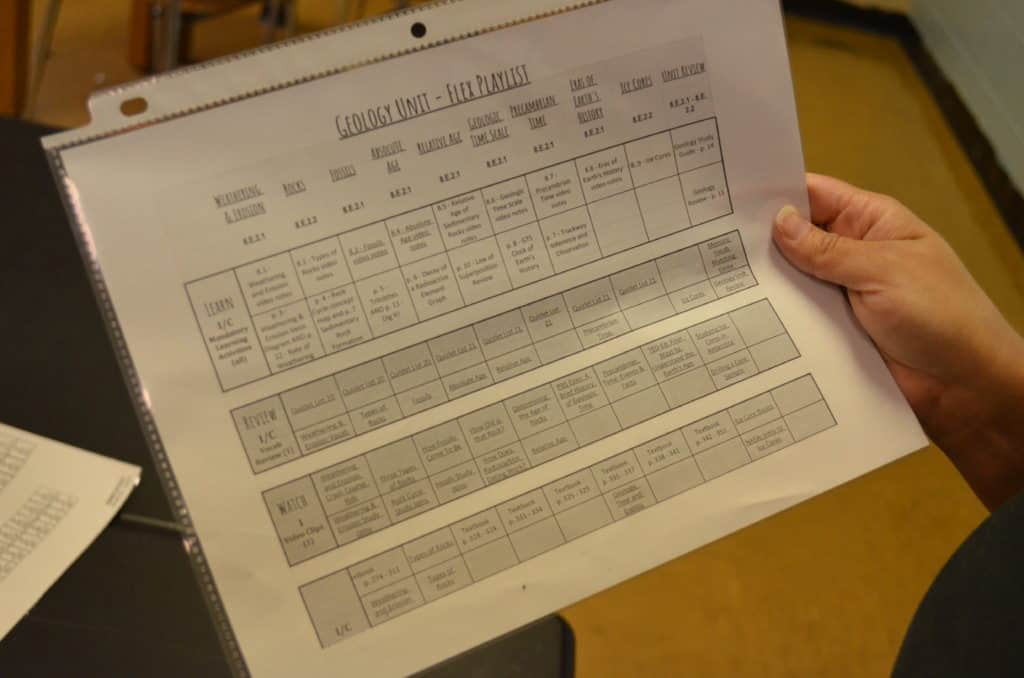
Having come into the classroom in the late 20th and early 21st Century, Owens has seen the way technology has changed teaching. When she was in high school, the students were lucky to have access to a few giant, clunky desktop computers that sat in the back of one of the classrooms. Students could go there to look something up during those early years of the Internet, but things are completely different now.
“We definitely have access to more technology,” she said. “I think kids today take all that for granted, because you can just take your phone out.”
And Owens does not struggle with technology the way some do. It is a hard balance knowing how to use computers, 3D printers and other tech in the classroom. They are not a replacement for strong lessons. They are complementary.
“I can use these things and give kids something that is technology based but that supports classroom discussion,” she said.
Owens has been a classroom teacher both under Democratic political rule in the state as well as Republican. She is aware that there is a battle being waged in Raleigh over how students today should be taught, but she sees it in fairly simple terms. No matter what is decided, she said that teachers just need to be supported. She did, however, say that it would be helpful if policymakers could see firsthand how different schools operate.
“I think it would be great if political figures would come visit classrooms more frequently, because each school has different populations, different resources,” she said.
Owens said that good things are happening in schools around the state. She wants educators and schools to get the credit they deserve.
“We do the best we can with what we’ve got,” she said. “A lot of the good things that go on in education or schools…are overlooked for the negative things.”
Note: Beverly Owens was nominated by fellow educator Michelle Ellis.
Correction: This article originally stated incorrectly that Owens spent 10 years at Discovery Place in Charlotte. She worked in that role for two years.
Recommended reading
